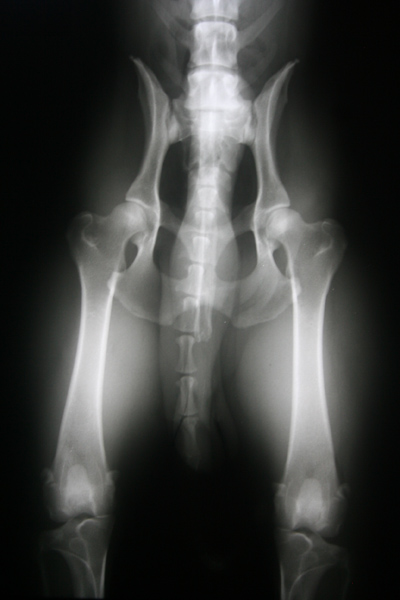When you bring up health testing amongst pit bull breeder’s you’ll hear an entire range of reasons for and against the practice. Unfortunately for our breed, we need to be utilizing every available resource to help maintain and improve upon the absolute travesty that keeps occurring.
In OFA hip scores, from January 1974 until December 2011, only 733 dogs have been tested – of those tested, we had 24.1% dysplastic. That’s atrocious for a working breed like the American Pit Bull Terrier. Why aren’t more people testing these dogs? Out of 733 dogs tested there were 177 that are considered dysplastic. Considering the number of APBTs that are registered yearly with the ADBA and UKC, the number of dogs tested is incredibly low.
The overall cost of health testing a breeding dog or bitch truthfully isn’t much in the long run – especially if a breeder plans to utilize the stud or bitch more than once. It should also give the puppy buyers AND the breeder piece of mind knowing that they did everything possible to reduce the potential of throwing a genetic disease.
Unfortunately, not all breeders believe this and give reasons like, “It’s too expensive” or “My dog works just fine. There aren’t any problems in the line. It would show.” Those of us who do health test know this is complete and total baloney.
A dog who is dysplastic, has cardiac or thyroid issues can and still do work through it more often than not without showing any symptoms. That being said, they eventually do get to the point when they’re showing and then what happens? If it’s a cardiac issue the dog could fall over and die on a walk or if it’s dysplastic the dog’s quality of life could diminish immensely as a young dog. Neither of which is fair to the dog or the people who have to see the animal suffer – especially if it’s a puppy buyer.
No, health testing doesn’t guarantee you’ll get a puppy that doesn’t have a health condition since it takes ninety-two chromosomes to match in every puppy and the good matches aren’t always going to be possible. That being said, it doesn’t mean it won’t significantly reduce the chances of a problem in an unborn puppy. The risks associated with not health testing far outweigh those of testing and getting a puppy with a genetic condition that reduces the quality and quantity of that dog’s life and the time they will spend in the loving hands of their owner. To me, personally, it doesn’t add up as to why more and more people AREN’T testing for the betterment of the American Pit Bull Terrier.

